-
Glaucoma: How to Protect Your Vision
Glaucoma develops when the optic nerve sustains damage. Usually, glaucoma is the result of excessively high levels of intraocular pressure, or eye pressure. It develops slowly, which is why most people diagnosed with glaucoma are older adults. Although glaucoma is a major culprit of blindness in the U.S., there isn’t a cut-and-dry way to prevent it. However, you can talk to an ophthalmologist located in the Chicago area about your risk factors. By knowing your risk factors, your ophthalmologist can help you learn ways of protecting your eyes.
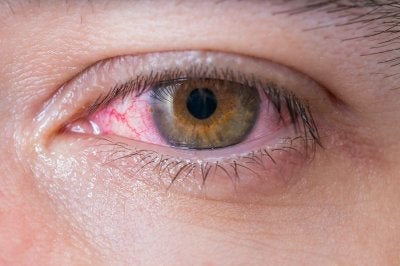
Visit Your Eye Doctor Regularly for Exams
When glaucoma is allowed to progress untreated, the vision loss is irreversible. Visit an optical center regularly to get your eyes checked. Your eye doctor will let you know how often you should schedule an exam, based on your individual risk factors. In general, glaucoma tests are recommended every 2 to 4 years before age 40. After age 40, you should be tested for glaucoma more frequently. Early detection of this vision problem allows for early treatment, which can slow the progression of vision loss.
Wear Protective Eyewear
Some people develop glaucoma not because of high intraocular pressure, but because of severe eye injuries that damage the optic nerve. These include injuries from caustic chemicals and flying projectiles. Ophthalmologists strongly recommend wearing protective eyewear whenever you’re doing a high-risk activity. These include using power equipment like chainsaws, mowing the lawn, doing carpentry work, and playing sports. Eye injuries can also occur from activities that aren’t generally seen as dangerous, such as using chemical cleaners in the kitchen.
Lead an Active Lifestyle
It’s thought that exercising regularly may help lower the pressure in the eyes . Researchers do not think that exercise has a lasting protective effect. In other words, exercise may only help if you continue to do it throughout your lifetime. Experts recommend moderate exercise at least 3 times per week. If you do yoga, try to avoid poses that invert your body. Headstands may increase your intraocular pressure.
-
Understanding Low Vision
For some people, corrective eyewear and eye surgery cannot improve their vision. If someone you know has an eyesight problem that cannot be fixed through vision correction options like LASIK , contact lenses, or eyeglasses, then his ophthalmologist in Chicago may diagnose him with low vision. Watch this video to learn more about what it means to have and live with low vision.
Having low vision can make it difficult to complete everyday tasks like driving, shopping, reading, watching TV, and recognizing faces. Because there are many causes of low vision, people can be affected by low vision in various ways. While one person’s condition may affect her central vision or contrast sensitivity, another person’s may impact his depth perception or peripheral vision.
-
Caring for Your Eyes When You Have Diabetes
Regularly seeing an eye doctor is important for everyone, but even more so for people with diabetes. Read on to learn why you should regularly see your ophthalmologist near Chicago and what else you can do to practice good eye care when you have diabetes.
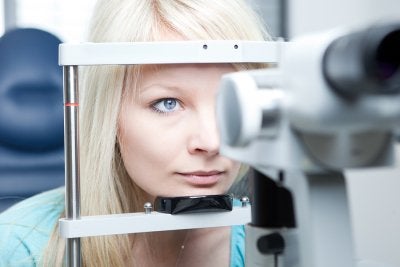
Control Your Blood Sugar
Diabetes is a condition that is characterized by high blood sugar and problems with blood sugar regulation. When there is too much glucose in your blood, this can cause damage to your body, which includes the tissues of your eyes. For this reason, maintaining healthy blood sugar levels is an important part of protecting your vision when you have diabetes. Doing this can help protect the blood vessels in your eyes and slow the progression of eye diseases. See your doctor at least twice per year for an A1C blood test, which measures what your blood glucose levels were for 2 or 3 months prior.
Manage Your Blood Pressure
High blood pressure can also be a contributing factor when it comes to diabetes and eye health. To help slow and prevent eye diseases that can be caused by diabetes, maintain healthy blood pressure levels by moderating your sodium intake, exercising, and staying at a healthy weight. If these practices aren’t enough to keep your blood pressure levels healthy, then ask your doctor about medications that help regulate blood pressure. To practice good eye care, aim for blood pressure that is under 140/80.
Visit Your Eye Doctor
Annual eye exams give your eye doctor a chance to catch the early signs of eye disease, something that is particularly important for people with diabetes. Many diabetics develop an eye problem called diabetic retinopathy, a condition that is a complication of diabetes and that can lead to blindness if left untreated. The early stages of this eye disease typically cause no symptoms, so seeing your doctor at least once per year for a comprehensive dilated eye exam is critical for protecting your eyes when you have diabetes.
-
How Do IOLs Work?
If you are considering cataract surgery, then your ophthalmologist may recommend that you consider eye surgery in Chicago to get intraocular implants . Watch this video to learn about how this type of vision correction works.
Sometimes referred to as an intraocular lens or IOL, an intraocular implant works like your eye’s natural lens by focusing the light that penetrates the cornea and pupil to help you see. The IOL focuses light onto your retina at the back of the eye, and the retina then transforms the light into signals that travel through the optic nerve to the brain, where they are rendered into the images that you see. In this way, IOLs can improve a range of vision problems.
-
Tips for Avoiding Household Eye Injuries
When it comes to practicing good eye care in Chicago , this means more than just visiting your optical center for regular exams with you eye doctor. Caring for your eyes involves taking certain precautions when necessary to help protect your vision, and this includes when you are at home. There are several things that you can do to help avoid household eye injuries.
If you ever use hazardous chemicals or products around the house, then eye doctors recommend that you protect your eyes from injury by wearing protective eye gear. Also, if you ever work with power or hand tools, bungee cords and loads, lawn mowers, or hedge trimmers, then these are all situations in which you should be cautious about fragments injuring your eyes and in which you can benefit from using protective eyewear. Finally, take care in the kitchen while preparing anything with oil or hot liquids to prevent them from splattering and causing eye injuries.
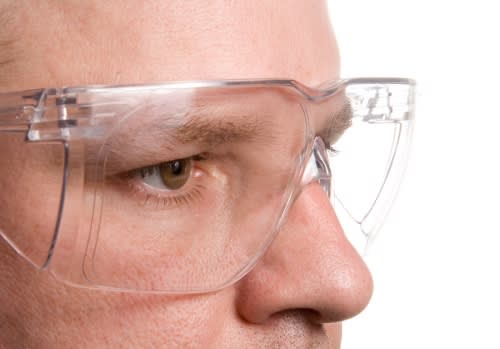
-
A Look at Common Symptoms and Causes of Glaucoma
Routine optical exams are an important part of overall eye care, so it’s important to see your eye doctor in Chicago regularly. Doing so can help keep your eyes healthy by detecting problems, such as glaucoma, in their early stages. Read on to learn more about this eye disease.
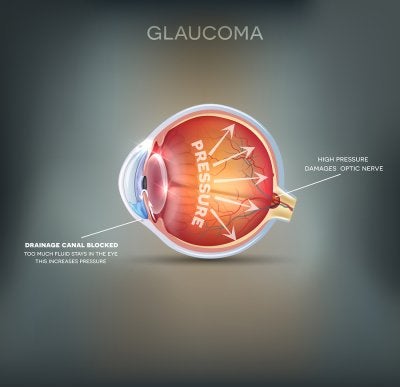
Glaucoma
Glaucoma typically results due to fluid buildup that increases the pressure in the eye and causes damage to the optic nerve. The early symptoms of glaucoma are often minor or non-existent, so many people do not realize that something is wrong with their eyes until the disease has become advanced. Because glaucoma progresses slowly and often develops unnoticed, it’s important to visit your ophthalmologist regularly for exams. When caught early, glaucoma treatment can help preserve your vision.
Symptoms
The most common form of this disease is called open-angle glaucoma, and it usually has no symptoms while it’s in its early stages. Eventually, the damage to the optic nerve begins to cause blanks spots in the individual’s vision, but even these are difficult to notice until they become substantial in size. Another form of this disease, called angle-closure glaucoma, can cause an acute attack. These attacks can result in nausea, vomiting, severe eye pain, blurry vision, headache, and rings or halos around lights. If you experience any of these symptoms, see an ophthalmologist immediately.
Causes
The inside of your eyes are lined with a layer of tissue that is sensitive to light, called the retina. The optic nerve, which is composed of many nerve fibers, runs like a cable between your retina and your brain, communicating signals from the eye, which your brain then interprets as images. The front portion of an eye contains a clear fluid called aqueous humor. A healthy eye continually produces new aqueous humor, while draining out the existing fluid at the same time. This process works to maintain the healthy balance of pressure within the eye. Eyes with glaucoma, however, fail to preserve this balance, and the added pressure damages the optic nerve fibers and leads to reduced vision or blindness.
-
Preventing Computer-Related Eyestrain
While regularly visiting your ophthalmologist near Chicago is an important part of your ongoing eye care, so is taking care of your vision while at work and home. If your vision gets blurry, your eyes burn, or your neck aches after sitting in front of your computer for a while, then you may be dealing with eyestrain. Watch this video to find out more about this common condition.
Referred to by eye doctors as computer vision syndrome, eyestrain that results from looking at a computer monitor is not an uncommon problem. Luckily, there are several steps that eye doctors recommend for preventing this issue. Your monitor should be 20 to 30 inches from your eyes, so adjusting it to be within this range may alleviate your symptoms. Also, ensure that the monitor is at eye level and that your lighting doesn’t create a glare on the screen.
-
Treating Age-Related Presbyopia with Eye Surgery
Presbyopia is a vision change that occurs with age. This condition causes problems with focusing on close work, which can be particularly problematic for individuals who work on computers and those who enjoy reading. If you’ve discovered that your contact lenses or eyeglasses are no longer sufficient for your vision, it’s time to make an appointment with an ophthalmologist near Chicago. An ophthalmologist may recommend eye surgery to correct your presbyopia .
As you’ll learn when you watch this video, vision correction for patients with presbyopia may involve the insertion of intraocular lenses (IOLs). This involves removing the natural lens of the eye and replacing it with a synthetic lens. Another possibility is refractive surgery. Your ophthalmologist can reshape your cornea to improve your vision.
-
The Importance of Glaucoma Screening at Age 40
Glaucoma refers to a cluster of eye diseases that inflict damage on the optic nerve, resulting in vision loss and perhaps blindness. Glaucoma is typically characterized by increased intraocular pressure, which can occur when fluid accumulates within the eye instead of being drained away. The optic nerve can sustain damage when this pressure builds up. Although glaucoma is a serious eye disease, the good news is that your ophthalmologist can detect it early and recommend effective treatment options to manage the problem. You can facilitate early detection of glaucoma by scheduling a screening at an optical center in Chicago.
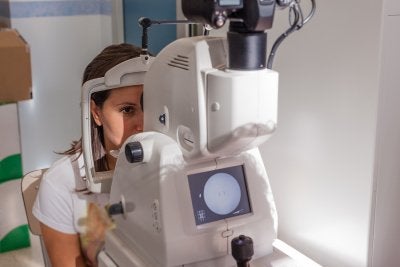
Why You Should Get Screened
Many adults resist going to an ophthalmologist for an eye exam because they think that their vision is fine or that their prescription hasn’t changed. But in fact, eye diseases can develop without causing noticeable symptoms. Only a comprehensive eye exam at an optical center can lead to an accurate diagnosis. Taking an hour or so out of your day to undergo a glaucoma screening is a worthwhile investment in your health. Another important reason why you should get screened is that when left untreated, glaucoma can gradually rob you of your eyesight. When detected and treated early on, glaucoma is quite manageable.
When You Should Get Screened
The reason why it’s important to get screened at age 40 is because this is the time of life when eye diseases and other problems typically begin to develop. Even if your vision appears to be perfect, you could be developing asymptomatic problems like glaucoma. Your ophthalmologist will recommend a glaucoma screening schedule for you to follow. Generally, it’s recommended that patients ages 40 through 54 have a screening every one to three years. Those who are 54 to 64 should have one every one to two years and those who are older than 64 should have one every six to 12 months. Your ophthalmologist may adjust this schedule depending on your specific risk factors of glaucoma.
What Your Risk Factors Might Be
Ask your ophthalmologist if you’re at an increased risk of glaucoma. You may be if you have a family history of the disease, you’re age 40 or older, you have high intraocular pressure, or you are farsighted. People with diabetes, high blood pressure, a history of eye injuries, and a history of corticosteroid use are also at an increased risk.
-
Eating for Eye Health
As your eye doctor can tell you, your diet can affect your vision in a number of ways, but if you have diabetes, the foods you eat take on even more significance. Talk to your eye doctor in Chicago about the link between blood sugar control and vision health. This video explains more.
High blood sugar can cause damage to the blood vessels in your eyes that can lead to blindness. By controlling the amount of carbohydrates in your diet, you can better control your blood sugar level and reduce the chances of eye damage. When you visit your eye doctor, he or she will perform an exam to check for diabetic eye damage and can offer eye care tips, including dietary advice, to better protect your vision.
